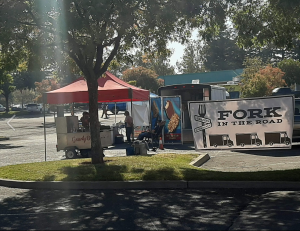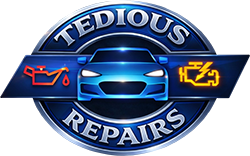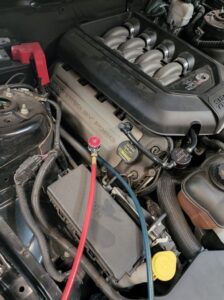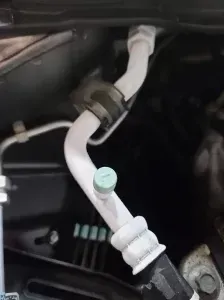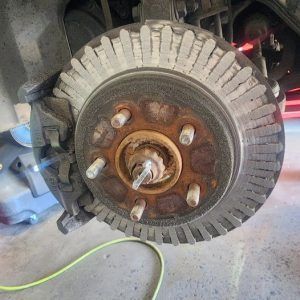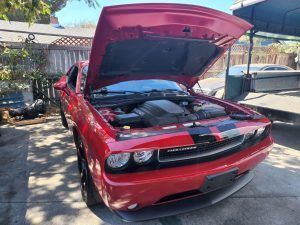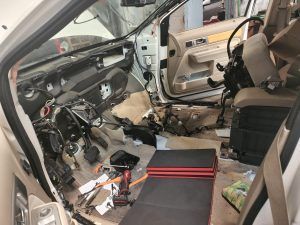Auto Repair Services Every Vehicle Owner In Barber, Chico Should Know About
As a vehicle owner in Barber, Chico, it is crucial to stay informed about the top common auto repair services that your vehicle may require. Regular maintenance and timely repairs can help ensure the longevity and optimal performance of your car.
In this article, we will discuss the essential services that every vehicle owner should know about.
Firstly, regular oil changes and fluid replacements are vital to keep your engine running smoothly.
Additionally, tire rotation and wheel alignment are necessary to maintain even tire wear and improve fuel efficiency.
Brake inspection and repair should never be neglected, as they are crucial for your safety on the road.
Furthermore, battery replacement is a common service that every vehicle owner may need at some point.
Lastly, engine tune-up and maintenance play a significant role in maximizing performance and preventing potential issues.
By understanding and staying proactive about these common auto repair services, you can ensure the longevity and reliability of your vehicle, ultimately saving you time and money in the long run.
Key Takeaways
- Regular maintenance is essential for vehicle longevity and performance.
- Oil changes and fluid replacements are important for smooth engine operation.
- Tire rotation and wheel alignment improve tire wear and fuel efficiency.
- Brake inspection and repair ensure safety on the road.
Oil Change and Fluid Replacement
If you want your vehicle to continue running smoothly, it’s essential to stay up to date with regular oil changes and fluid replacements. Oil is the lifeblood of your engine, lubricating its moving parts and preventing them from grinding against each other. Over time, oil breaks down and becomes less effective, which can lead to increased friction and wear.
By getting regular oil changes, you ensure that your engine stays properly lubricated, which can help prolong its lifespan and improve fuel efficiency.
In addition to oil changes, it’s also important to replace other fluids in your vehicle. This includes coolant, transmission fluid, brake fluid, and power steering fluid. Coolant helps regulate the temperature of your engine, preventing it from overheating. Transmission fluid is crucial for smooth gear shifting, while brake fluid ensures that your brakes work properly. Lastly, power steering fluid allows you to easily maneuver your vehicle.
By keeping up with oil changes and fluid replacements, you can prevent costly repairs down the line. It’s recommended to consult your vehicle’s owner manual or a trusted mechanic to determine the appropriate intervals for these services.
With regular maintenance, your vehicle will continue to perform at its best.
Speaking of maintenance, the next section will cover tire rotation and wheel alignment, which are key to ensuring even tire wear and optimal handling.
Tire Rotation and Wheel Alignment
Tire rotation and wheel alignment are two crucial aspects of vehicle maintenance that every vehicle owner should be familiar with. By regularly rotating your tires, you can ensure that they wear evenly, which extends their lifespan and saves you money in the long run.
Additionally, proper wheel alignment not only improves your vehicle’s handling and safety, but it also prevents premature tire wear and reduces fuel consumption. So, make sure to prioritize tire rotation and wheel alignment to maximize the life of your tires and enjoy the benefits of a properly aligned vehicle.
Extend the Life of Your Tires
To make sure you get the most out of your tires, it’s essential to follow these simple maintenance tips.
First, regularly check your tire pressure to ensure it’s at the recommended level. Underinflated tires can wear out faster and affect fuel efficiency.
Second, rotate your tires every 5,000 to 7,000 miles to distribute wear evenly. This helps prolong their lifespan.
Third, maintain proper wheel alignment. Misaligned wheels can cause uneven tire wear and affect your vehicle’s handling.
Lastly, avoid excessive speeding and abrupt braking, as these can lead to tire damage.
By following these tips, you can extend the life of your tires and save money in the long run.
Now, let’s explore the benefits of proper wheel alignment and how it contributes to a smoother and safer driving experience.
Benefits of Proper Wheel Alignment
Having proper wheel alignment not only improves your driving experience, but it also ensures a smoother and safer ride. When your wheels are properly aligned, it means that they are positioned at the correct angles, allowing your tires to make optimal contact with the road. This leads to several benefits.
First, proper wheel alignment reduces tire wear, helping to extend the life of your tires. It also improves fuel efficiency, as your vehicle doesn’t have to work as hard to move forward. Additionally, having your wheels aligned can enhance your vehicle’s handling and stability, making it easier to control.
So, make sure to have your wheels aligned regularly to enjoy these benefits.
Now, let’s move on to the next important topic – brake inspection and repair.
Brake Inspection and Repair
When it comes to taking care of your vehicle, one important aspect you should never overlook is getting regular brake inspections and repairs. Your brakes are a critical component of your vehicle’s safety system and should be maintained to ensure optimal performance.
Here are three reasons why brake inspections and repairs are crucial:
- Safety: Faulty brakes can compromise your safety on the road, leading to accidents and injuries. Regular inspections can detect any issues early on, preventing potential disasters.
- Increased Efficiency: Well-maintained brakes improve the overall efficiency of your vehicle. Properly functioning brakes ensure smooth stopping and reduce wear and tear on other components, saving you money in the long run.
- Cost Savings: Ignoring brake issues can lead to more extensive and expensive repairs down the line. Regular inspections and repairs help catch minor problems before they escalate, keeping repair costs to a minimum.
Now that you understand the importance of brake inspections and repairs, let’s move on to the next crucial topic: battery replacement.
Battery Replacement
If you’re experiencing difficulty starting your vehicle or noticing that your headlights are dim, these could be signs of a weak battery. It’s important to address this issue promptly to avoid getting stranded.
When it comes to choosing the right battery for your vehicle, consider factors such as the size, type, and cold cranking amps (CCA) requirements.
Signs of a Weak Battery
A weak battery can really put a damper on your day, leaving you stranded when you least expect it. It’s important to be able to recognize the signs of a weak battery so you can address the issue before it becomes a major problem.
One of the most common signs is a slow or hesitant engine start. If you notice that your engine is struggling to turn over or takes longer than usual to start, it could be a sign that your battery is weak.
Another sign is dim headlights. If your headlights seem less bright than usual, it could be a result of a weak battery.
Pay attention to any strange electrical issues as well, such as flickering dashboard lights or a weak power supply to your accessories. These are all signs that your battery may need to be replaced.
Speaking of which, choosing the right battery for your vehicle is crucial. Stay tuned for the next section to find out more.
Choosing the Right Battery for Your Vehicle
To ensure optimal performance, it’s crucial for you to select the appropriate battery for your vehicle. Here are four key factors to consider when choosing the right battery:
- Battery Size: Check your vehicle’s manual or consult with a professional to determine the correct battery size and specifications for your specific make and model.
- Cold Cranking Amps (CCA): This measures the battery’s ability to start your vehicle in cold temperatures. Ensure the CCA rating meets or exceeds your vehicle’s requirements.
- Reserve Capacity (RC): This indicates how long the battery can power your vehicle’s electrical components in case of alternator failure. Choose a battery with sufficient RC for your needs.
- Maintenance Requirements: Decide between maintenance-free or low-maintenance batteries, depending on your preference and willingness to perform regular battery maintenance.
By understanding these factors, you can confidently choose the right battery for your vehicle.
Now, let’s delve into the importance of engine tune-up and maintenance for long-lasting performance.
Engine Tune-Up and Maintenance
Regular engine maintenance is crucial for keeping your vehicle running smoothly and preventing major issues down the road. By performing regular tune-ups, you can ensure that all the components of your engine are working optimally and catch any potential problems before they become costly repairs.
An engine tune-up typically includes inspecting and replacing spark plugs, checking and adjusting ignition timing, and cleaning or replacing the air filter to ensure proper fuel efficiency and engine performance.
Importance of Regular Engine Maintenance
Maintaining your engine regularly is crucial for optimal vehicle performance and longevity. By sticking to a regular engine maintenance schedule, you can prevent costly repairs and ensure that your vehicle runs smoothly for years to come.
Here are three important reasons why regular engine maintenance is so important:
- Improved Fuel Efficiency: Regular engine maintenance, such as changing the oil and air filters, can help improve your vehicle’s fuel efficiency. A well-maintained engine runs more efficiently, reducing the amount of fuel it needs to operate.
- Enhanced Engine Performance: Regular engine maintenance helps keep all the components of your engine in good working condition. This includes checking and replacing spark plugs, which can improve engine power and acceleration.
- Extended Engine Lifespan: Engine maintenance helps identify and address any issues before they become major problems. By catching and fixing issues early on, you can extend the lifespan of your engine and avoid costly repairs down the road.
Taking care of your engine is essential, but it’s just one component of a complete engine tune-up.
Components of an Engine Tune-Up
When it comes to keeping your engine in top shape, understanding the components of an engine tune-up is essential. A tune-up is a maintenance procedure that involves inspecting and servicing various parts of the engine to ensure optimal performance and efficiency.
The key components of an engine tune-up include checking and replacing spark plugs, inspecting and cleaning the fuel injectors, replacing the air filter, checking and adjusting the ignition timing, and inspecting the ignition system components.
Spark plugs play a crucial role in the combustion process, and worn-out plugs can lead to poor fuel economy and misfires. Fuel injectors need to be clean and functioning properly to deliver the right amount of fuel to the engine. The air filter prevents dirt and debris from entering the engine, ensuring clean air for combustion. Ignition timing and system components need to be checked and adjusted to ensure proper firing of the spark plugs.
By addressing these components during an engine tune-up, you can improve fuel efficiency, reduce emissions, and extend the lifespan of your engine.
Frequently Asked Questions
How often should I change my vehicle’s oil and other fluids?
You should change your vehicle’s oil every 3,000 to 5,000 miles or as suggested by your vehicle’s manufacturer. Other fluids, such as transmission fluid and coolant, should be checked and changed according to your owner’s manual.
Can I rotate my tires and align my wheels myself, or should I take it to a professional?
You should take your vehicle to a professional to rotate your tires and align your wheels. They have the necessary equipment and expertise to ensure it is done correctly and safely.
How can I tell if my vehicle’s brakes need to be inspected or repaired?
To determine if your vehicle’s brakes need inspection or repair, look out for warning signs such as squealing or grinding noises, a vibrating brake pedal, a spongy feel when applying the brakes, or if your vehicle takes longer to stop.
What are the signs that indicate it’s time to replace my vehicle’s battery?
If your vehicle’s battery is struggling to start the engine, the lights are dim, or you hear a clicking noise when you turn the key, it’s time to replace your battery.
What is included in an engine tune-up and how often should it be done?
An engine tune-up typically includes replacing spark plugs, checking and adjusting ignition timing, inspecting the fuel system, and cleaning or replacing the air filter. It should be done every 30,000 miles or as recommended by your vehicle’s manufacturer.
Conclusion
In conclusion, as a vehicle owner in Barber, Chico, it’s crucial to be aware of the top common auto repair services.
Regular oil changes and fluid replacements are essential for maintaining the health of your engine.
Tire rotation and wheel alignment ensure even wear and enhance overall performance.
Brake inspection and repair guarantee your safety on the road.
Battery replacement is necessary to prevent unexpected breakdowns.
Lastly, keeping up with engine tune-ups and maintenance will prolong the life of your vehicle.
Stay proactive and informed about these services to ensure a smooth and hassle-free driving experience.
